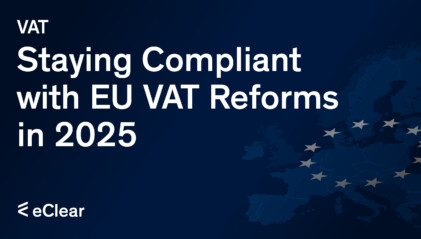After years of booming growth, digital commerce is showing signs of slowing down, mainly due to global inflation hitting a 15-year high of 8.8% in 2022, according to a new study by the Infosys Knowledge Institute. The research surveyed 2,500 companies across 12 industries, suggesting that companies must focus on more than high-quality products and competitive pricing to navigate this challenging landscape.
The study identifies three essential ingredients for digital commerce success: personalisation, a flexible foundational architecture, and a collaborative approach between sales and technology teams. Personalisation initiatives, such as tailored offers and customer service, can increase a company’s performance by 13%. However, only 18% of companies have implemented personalised pricing and 39% offer personalised customer service.
The research also highlights a shift towards microservices and API-first architectures, with 51% of surveyed companies already adopting this approach and 95% planning to do so by 2024. The study calls for a holistic review of six key aspects: organisational structure, technology architecture, digital capabilities, system integration, payments, and analytics.
As digital commerce becomes increasingly customer-centric, the study warns that a misalignment in leadership roles could further hamper performance. Currently, only 5% of companies have digital commerce under the purview of chief revenue or sales officers. In comparison, 38% are led by technology leaders.
The report concludes that a balanced focus on technology and customer insight is essential for companies to thrive in the digital age.
EU Unready for 2024 VAT Fraud Rules

According to PWC, EU member states and payment service providers are ill-prepared for new regulations to prevent VAT fraud, set to take effect on 1 January 2024. Despite the looming deadline, the consultancy firm warns that many countries have yet to implement the rules.
Jasper van Schijndel, a partner and tax advisor at PWC, explains that a unified European database will collect all transactions from consumers and businesses. The aim is to enable VAT fraud inspectors to identify potential fraud to recover billions of euros lost to fraud, estimated at €100 billion annually.
However, Van Schijndel points out that the database must handle ‘large amounts of data,’ posing challenges for tax authorities. He also raises privacy concerns, noting that the Dutch Council of State has questioned the proportionality of the new regulations.
PWC itself questions the new system’s effectiveness, citing the lack of context in the data for tax and fraud inspectors to identify VAT fraud effectively. “European policymakers claim it’s manageable, but practice will tell,” says Van Schijndel.
Italy’s VAT Overhaul: What You Need to Know

In a landmark move, Italy’s Enabling Law 2023 has ushered in a comprehensive reform of the country’s value-added tax (VAT) system, aiming for full compliance with European VAT regulations. The law, formally known as Law No. 111 and published on 14 August 2023, grants the Italian government a 24-month window to issue legislative decrees that will reshape the nation’s tax landscape.
Aligning with European Standards
The reform seeks to harmonise Italy’s VAT requirements with European VAT Law, notably Directive 2006/112/EC. This includes redefining the supply of goods and services moving away from Italy’s previous interpretations.
Rethinking VAT-Exempt Transactions
The law also mandates a review of VAT-exempt transactions, particularly affecting the real estate sector. The new rules will redefine exemptions for the sale and lease of buildings, aiming for a more streamlined approach.
Rationalising VAT Rates
The law proposes a “rationalisation” of VAT rates, aligning them more closely with European criteria. This will involve standardising the VAT treatment of similar goods and services simplifying the tax system.
Overhauling Deduction Rules
Significant changes are in store for VAT deductions. The reform aims to focus deductions on the actual use of goods and services in VAT-subject transactions. This includes limiting the application of pro-rata deductibility and revising VAT deductibility in the real estate sector.
Special Provisions
The law also touches on specialised areas, such as the import of artworks, allowing for reduced VAT rates in line with Directive No. 2022/542/EU. Additionally, it seeks to simplify VAT regulations for third-sector entities and activities of general interest.
Implications for Taxpayers
The sweeping changes necessitate a thorough review of existing deduction plans, calling for a more generous prorate rule. Taxpayers and practitioners alike must adapt swiftly to this new tax landscape.
The Enabling Law 2023 is a significant step in Italy’s tax reform journey, aligning it more closely with European standards while aiming for a more efficient and equitable VAT system.
German Infrastructure Authority chases illegal goods

The Bundesnetzagentur, responsible for Germany’s essential electricity, gas, telecommunications and postal infrastructures, removed 1,358 dangerous and illegal electrical goods from online shops in the first half of 2023, reports onlinehaendler-news.de. Many products originate from China and do not meet EU safety standards. The network agency warns that the growing importance of online trade has exacerbated the problem of illegal products.
Despite the alarming figures, politicians do too little to regulate the market. The German Trade Association criticises Chinese suppliers for gaining an unfair price advantage by disregarding local safety and consumer protection regulations. Although the EU plans to abolish the 150-euro exemption limit at customs in 2028, critics see this as too late a measure.
The Federal Network Agency and customs work together to remove dangerous products from circulation. But the challenges are enormous: from drones with razor-sharp rotor blades to faulty radio-controlled sockets that pose a fire hazard. The network agency advises consumers to be cautious and critically examine particularly cheap offers.
ABOUT YOU Spins Off SCAYLE Unit

Hamburg’s ABOUT YOU Group has strategically spun off its cloud-based shop system, SCAYLE, into an independent subsidiary. With 300 employees and a client list featuring DEICHMANN and FC Bayern, SCAYLE GmbH aims to offer brands a flexible and rapid scaling solution in the digital marketplace.
Tarek Müller, Co-CEO of ABOUT YOU, believes this move will “accelerate SCAYLE’s success story,” granting it the autonomy to grow amid challenging e-commerce conditions. Despite market headwinds, SCAYLE has already executed complex migration projects and onboarded new international clients, solidifying its robust business performance.
TikToks Shop: The new retail king?

According to the US magazine The Information, TikTok plans to ban links to external online shops such as Amazon to strengthen its commerce section. The measure could lead to influencers no longer receiving commissions for sales via external platforms. Meanwhile, parent company ByteDance is investing heavily in staff and infrastructure. In the US, the TikTok shop already records a daily sales volume of three to four million US dollars, an increase from less than one million two months ago. By the end of the year, this figure is expected to rise to 10 million US dollars. TikTok has also ended its global partnership with Shopify to promote its shop.







